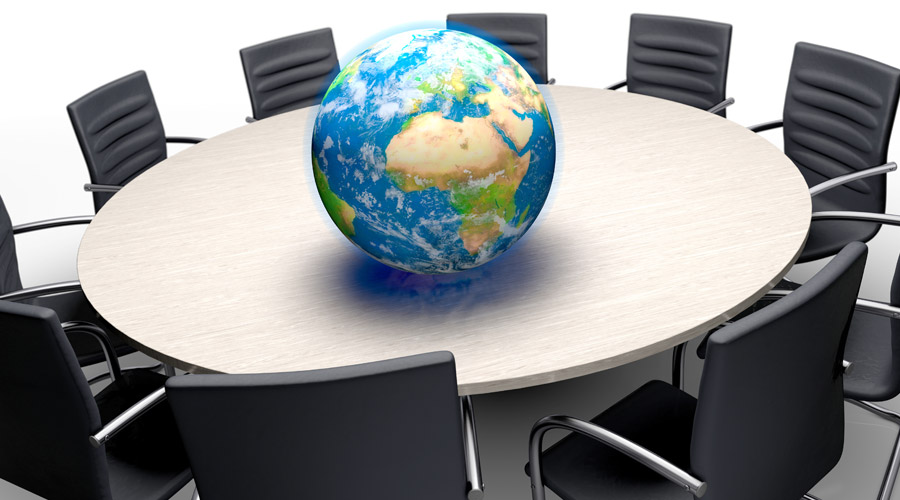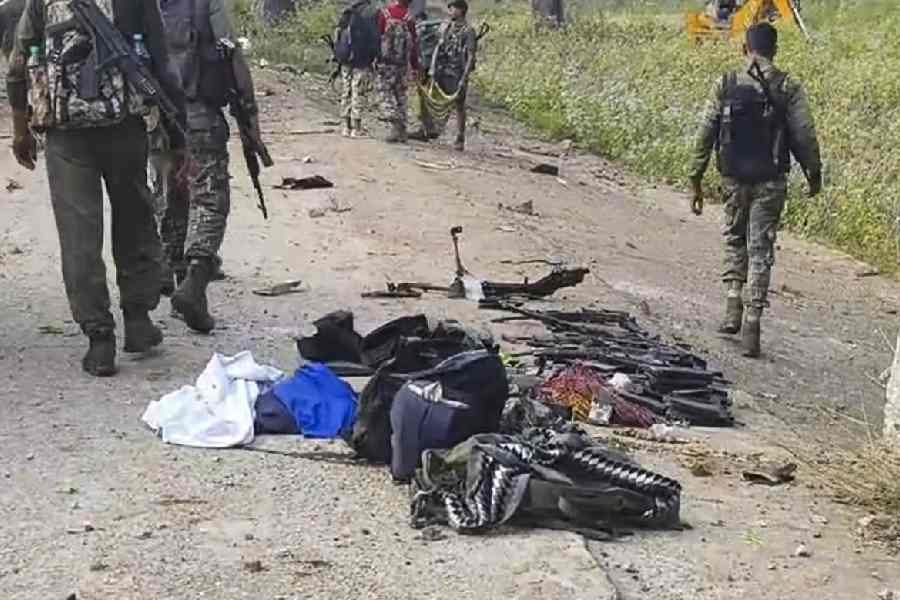Signs of danger
Sir — The latest report released by the Intergovernmental Panel on Climate Change has now revealed a grave threat for mankind. It says that global temperature may increase by 1.5 degrees Celsius by 2030 (“Climate ‘code red’”, Aug 10). This would lead to scorching heat waves, droughts, heavy rainfall, melting of glaciers and landslides. This could be devastating for India as well.
All of this is happening in the name of development — carbon emission from industries is one of the major reasons for this situation. For long, mankind has been exploiting nature; now nature is paying it back. The lesson that we must learn from this is that we have to think about nature and adopt more climate-friendly ways of development. Otherwise, we will have to reap what we sow.
Sandeep Rawat,
Chandigarh
Sir — The IPCC report has once again confronted us with the stark reality of climate change. It should galvanize us into taking remedial action. Extreme rainfall, floods, blistering heat waves and massive wildfires that currently devastate parts of the world are visible signs of climate change. We cannot afford to be indifferent at a time when this menace is upending our lives, livelihoods and habitats irreversibly.
Humankind must realize that it would be impossible to adapt to temperatures beyond a certain degree and survive. The Earth is heating up rapidly; a further increase spells catastrophe, and beyond it an apocalypse. Scientific evidence shows that climate change is largely caused by human activities such as the burning of fossil fuels and deforestation.
It is a mercy that climate change is a soluble problem. Humankind still has a small window of hope; it must take collective global action to limit global warming to 1.5 degrees Celsius above the pre-industrial levels, a critical threshold set by the Paris conference on climate change in 2015 and pull the planet back from the brink of destruction. The climate crisis requires that countries go beyond ‘net-zero emissions’ of carbon dioxide and other greenhouse gases by drastically cutting fossil fuel emissions. Affluent countries are the major emitters of greenhouse gases and are largely responsible for compounding the crisis to the tipping point. Climate justice demands that they do more, in proportion to their per capita emissions, to mitigate climate change and keep the planet fit to live.
G. David Milton,
Maruthancode, Tamil Nadu
Sir — The first part of the sixth IPCC assessment report has come out. It has concluded that much of the damage caused by humans to the environment is now irreversible. Even so, what actions are we taking? A conference on climate is called from time to time — for example, on October 31, a conference is scheduled to be held at Glasgow. This recent report will surely be debated, with countries across the world busy at the moment scripting their best arguments. At the same time, huge fires have been engulfing the United States of America, Greece, and Turkey. More recently, a huge fire has broken out in Algeria too, where dozens of people have died. Calamities like floods, landslides, lightning, drought have become regular. Regrettably, many countries are still in the process of setting a date when they will start reducing greenhouse gas emissions.
Jang Bahadur Singh,
Jamshedpur
Sir — The United Nations’ report on climate change warns that limiting global warming close to 1.5 degrees Celsius above pre-industrial levels will be “beyond reach” in the next two decades without immediate, rapid and large-scale reductions in greenhouse gas emission.
Climate change is one of the most complex issues facing the world today. Carbon dioxide, the heat-trapping greenhouse gas that has driven global warming in recent times, lingers in the atmosphere for hundreds of years, and the planet takes a while to respond to warming. So, even if we stop emitting all greenhouse gases today, global warming and climate change will continue to affect future generations.
In the absence of adequate national or international climate protection policies, communities around the world have been focusing on solving climate problems on their own, like working to build flood defences, instal water-permeable pavements to better deal with floods and storm water, and improve water storage and use. But it is important to think globally and act locally in the fight against climate change. A failure to act now will mean a reversal of all developmental activities till date; this could spell doom for the poorer and more vulnerable sections of society as well as lead to an erosion of biodiversity.
Ranganathan Sivakumar,
Chennai
Lend a hand
Sir — These days, there are several reports in newspapers about how many private schools are coming up with novel ways of providing support to its students — some are taking steps to protect the young minds from cyber crime, some others are encouraging fitness regimes for children leading sedentary lives. All of this is heartening. Yet, one cannot help but feel sad thinking about the vast majority of Indian students who are getting further marginalized, unable to access even regular classes, just because they are underprivileged. Can all schools not extend a helping hand to those who are most in need of support?
Sarmistha Chaki,
Calcutta











